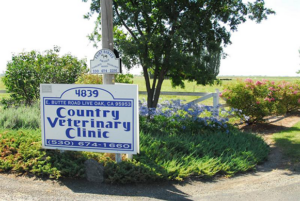If you are a responsible and conscientious pet owner, you probably already take your pet for regular wellness exams. These appointments are preventative in nature, designed to enable your vet to monitor the health and condition of your pet to ensure that they aren’t experiencing any preventable problems. Most adult animals are recommended to attend an annual wellness exam, but as your pet reaches their senior years, the frequency with which they are invited to these appointments can increase. This is because senior pet exams are extremely important. Here’s why.
Pets Age More Rapidly Than Humans
The main reason why senior pet exams are so important is that our animals age much faster than we do. For example, every human year is the equivalent of 7 dog years, so while your canine companion may only be 8 human years old and this probably seems young to you, their body age is equivalent to that of a 56 year old, making them virtually a senior citizen.
Exactly when a pet becomes senior can vary depending on their breed and size, but generally, a dog becomes senior during the last 25% of their life. Smaller dog breeds tend to have a longer lifespan than larger dog breeds. For example, most Terriers typically live to between 13 and 15 years old and are considered ‘senior’ from around age 9 or 10. Meanwhile Bernese Mountain Dogs have an average lifespan of just 8 to 10 years and become classed as senior as early as 6 years old.
Health Conditions Can Develop In Senior Pets Soon Than You Think
This rapid aging process means that your pet’s body may start to deteriorate, and they are more likely to develop health conditions much earlier than you might expect. This is because they will experience physical and cognitive age-related changes, such as:
- Weight gain or loss
- Greying fur
- Dry skin
- Dental problems such as bad breath and brown deposits on teeth
- Seeming confused or disorientated
- Forgetting games or commands that they previously knew
- Increased urination
- Difficulty urinating
- Mobility problems
- Unusual behaviors
- Vision deterioration
- Hearing loss
- Lethargy
Unfortunately, animals are pre-disposed to trying to hide signs of vulnerability and illness, which means that detecting that your pet is unwell or needs veterinary attention can be difficult. Keep a close eye on them and watch for anything abnormal as well as any of the symptoms listed above.
Certain health problems are more likely to affect older pets, such as arthritis, hypothyroidism, Cushing’s disease, heart problems and cancer. Regular senior pet wellness exams will give your vet the opportunity to monitor their health even more closely than normal so that any issues are detected and treated as quickly as possible. Doing so can help you pet to live as long as possible and enjoy the best quality of life that they can during their senior years.
If you would like more information about why senior pet exams are so important, please speak to our dedicated veterinary team in Live Oak at Country Veterinary Clinic by calling (530) 491-4500.



